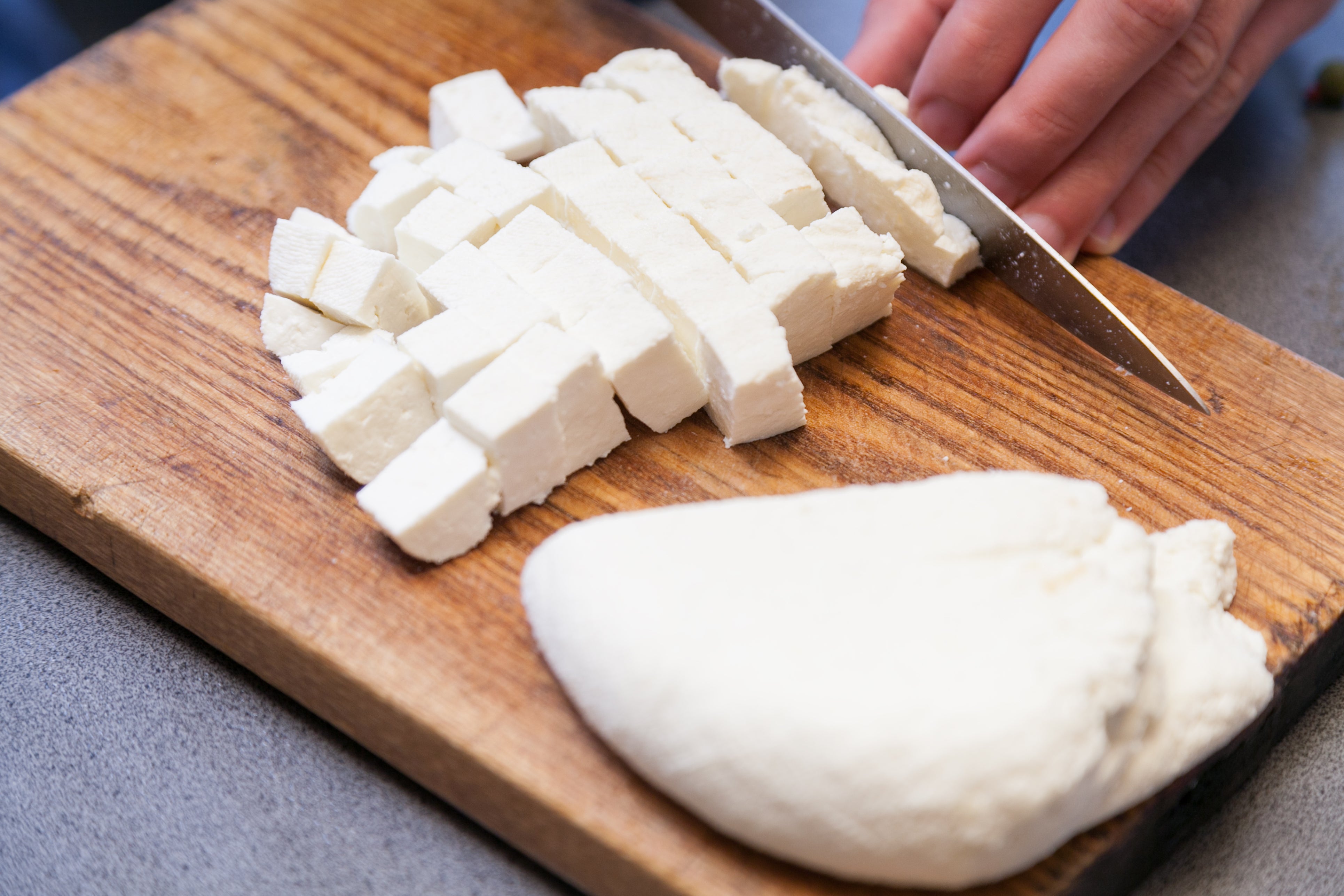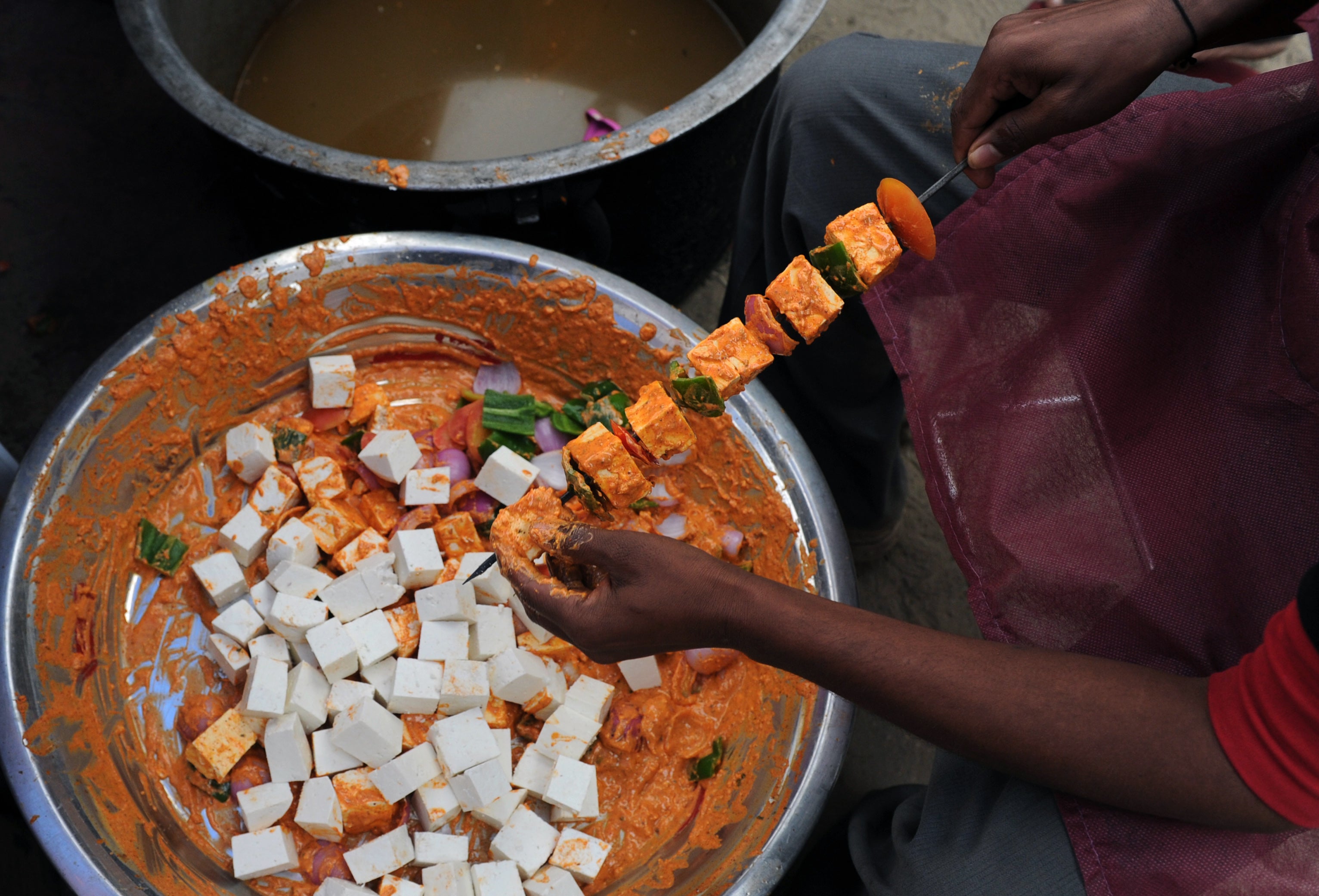ARTICLE AD BOX
The Indian government is set to issue guidelines that would require restaurants to specify whether they use authentic cottage cheese in their menu or a version of it made from oils and starch after public outcry over the increasing use of non-dairy “analogue paneer”.
Traditional paneer is a soft dairy-based cheese made after curdling milk with an acid, like vinegar, lime juice, or citric acid, to separate the curd from the whey. The resultant curd is strained in cheesecloth to drain it of liquid, and then pressed further to give it a firmer texture. Paneer is a staple ingredient for vegetarians in India, as it is said to be a rich source of protein, calcium, and healthy fats.
Analogue paneer, on the other hand, is a non-dairy substitute for paneer, and is made of vegetable oils, starch, and emulsifiers. While it mimics real paneer in appearance and texture, it lacks essential nutrients and may contain harmful additives. Analogue paneer is also significantly cheaper, making it popular in some commercial kitchens, but health experts warn that regular consumption could lead to digestive issues and elevated cholesterol levels.
“Analogue paneer looks and tastes like traditional paneer, but it is not paneer. Analogue paneer is cheaper and why don’t hotels and restaurants reveal it to consumers,” Nidhi Khare, union consumer affairs secretary, told the Press Trust of India.

While manufacturers are required by the Food Safety and Standards Authority of India (FSSAI) to label analogue paneer as “non-dairy”, restaurants are under no such obligation. Concerns over the use of analogue paneer rose a few months ago, when an X user flagged in October that Zomato Hyperpure, a service run by the food delivery giant that supplies to restaurants, was selling analogue paneer labeled as “fit for tikka and gravy paneer dishes”.
The post instantly led to wide backlash against Zomato, with concerns over the lack of transparency in restaurant ingredients, particularly whether customers are being served real paneer or its cheaper, synthetic alternative without their knowledge.
Since then, inspections across multiple Indian cities have revealed wider issues; authorities raided multiple factories over the last few months in the western Indian state of Gujarat and found adulterated paneer being supplied to restaurants, reported the Times of India. In Noida, located in India’s northern state of Uttar Pradesh, 83 per cent of paneer samples were found to fail quality tests and 40 per cent labelled unsafe for human consumption.

Despite the significantly lower cost of analogue paneer, experts have cautioned against regular consumption due to potential health risks like raised cholesterol levels and digestive issues.
Representatives from Maharashtra’s dairy industry met the western state’s Food and Drug Administration (FDA) minister in March, urging stricter regulation by the government.
“At least 50 per cent of hotels have switched to this imitation product because of its lower cost. But this is a serious health concern, and the government must intervene,” Prakash Khutwal of Urja Milk said, reported Hindustan Times.









 English (US) ·
English (US) ·